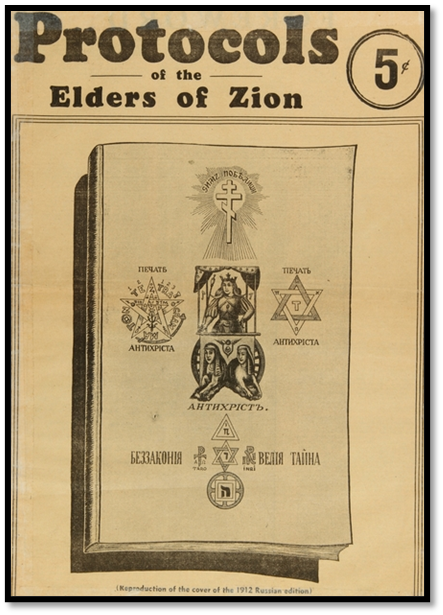Antisemitism and Conspiracy Theory
- John Zek
- Apr 17, 2025
- 3 min read
Updated: Apr 23, 2025

The roots of modern antisemitism come from the Middle Ages and the practices, laws and traditions that were placed on Jews which shaped their culture and tradition. Many Medieval kingdoms forbade Jews from typical trades, as well as participating in military or civic service; from this Jews instead were able to work in areas like money lending, commerce, handicraft manufacturing and the arts. For some Jewish families, this made them extremely wealthy and conspicuous, especially as feudal society moved towards a capitalist system. Other factors, such as forcing Jews to live in ghettos meant that they became isolated from the majority, they used their own language, schools and laws. Out of these sets of circumstances brewed racist stereotypes that persist today some of which are:
Jews did not work hard or produce goods with their hands
Jews were sexual predators
Jews chose to work with money and to trade in goods due to their greed and their desire to cheat Christians
Jews were cowards in a fair fight and avoided military service
Jews preferred meaningless study and frivolous entertainment to hard, creative work
Jews were insincere and potentially disloyal in that they converted to Christianity to obtain material benefits.[i]
From these stereotypes Jews were then often scapegoated for events and blamed for things like:
· causing military losses
· starting plagues and epidemics
· spreading radical politics such as communism
· orchestrating imperialism, colonialism, and the slave trade
· causing financial crises[ii]

Ruth Wisse, a Yiddish scholar points out how antisemitism has often transcended both left and right politics, for example during the 19th century Jew were conflated with liberalising forces such as democracy and market economies. For those on the right Jews symbolised an internationalist force that sought to sweep away traditional and conservative society, whilst the left placed Jews among the capitalist, exploitative class. [iii]
In a classic conspiracist manner (and you will see this repeated when discussing other common conspiracy theories) there are sets of contradictory beliefs, Jews are both: individualist but also communal, superstitious but also promoters of secularism, isolationist but also intermingled among other peoples, capitalist exploiters but also revolutionary Marxists.
In modern times racists have come to use a variety of terms to refer back to these Jewish stereotypes, these are some of the most prominent examples:
Blood libel: allegation that Jews used the blood of non-Jewish, usually Christian children, for ritual purposes.
Cabal: Referring to the idea of Jewish world control.
Cosmopolitan elite- Cosmopolitan referencing the idea of internationalism and/or communism. Elite is reference to their ‘hidden control’ or wealth.
Dual loyalty-references that Jews might have loyalty to a hidden agenda or to Israel.
Globalist- Again, refers to the notion that Jewish people have no allegiance to their country of origin.

Rothchild/Soros- The Rothchilds were a prominent Jewish banking family of the 19th century, George Soros is a Hungarian born U.S citizen and holocaust survivor. Invoking their names (or other prominent Jews) is an oft-used tactic to refer to the myth of Jewish control.
((()))- Used online the triple brackets around names or words allows antisemites to make quick reference to Jews while evading online censors.
Zionist: referring to Zionism, support for creation and existence of Israel. It may be used in replacement of the word Jew by antisemites and conspiracists. This is complicated by the fact that there are legitimate critics of Zionism and the policies of Israel who are not antisemitic, this will be discussed later.
[i] United States Holocaust Memorial Museum. “Antisemitism in History: The Early Modern Era, 1300–1800. https://encyclopedia.ushmm.org/content/en/article/antisemitism-in-history-the-early-modern-era-1300-1800?series=30 .
[ii] United States Holocaust Memorial Museum. “Antisemitism: An Introduction.” Holocaust Encyclopedia. June 28, 2024.https://encyclopedia.ushmm.org/content/en/article/antisemitism
[iii] Ruth R. Wisse. The Functions of Anti-Semitism. National Affairs. 2017.



Comments